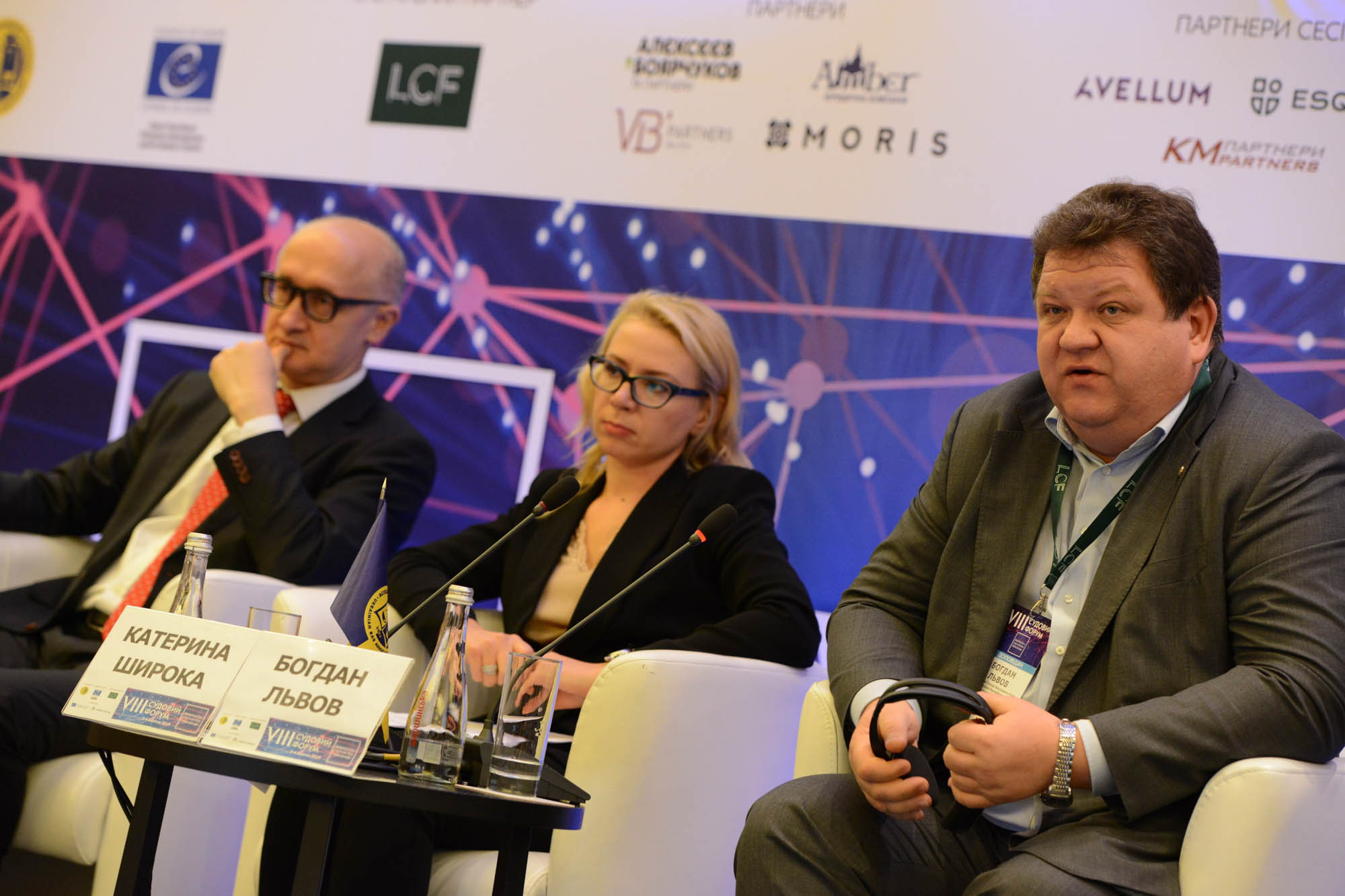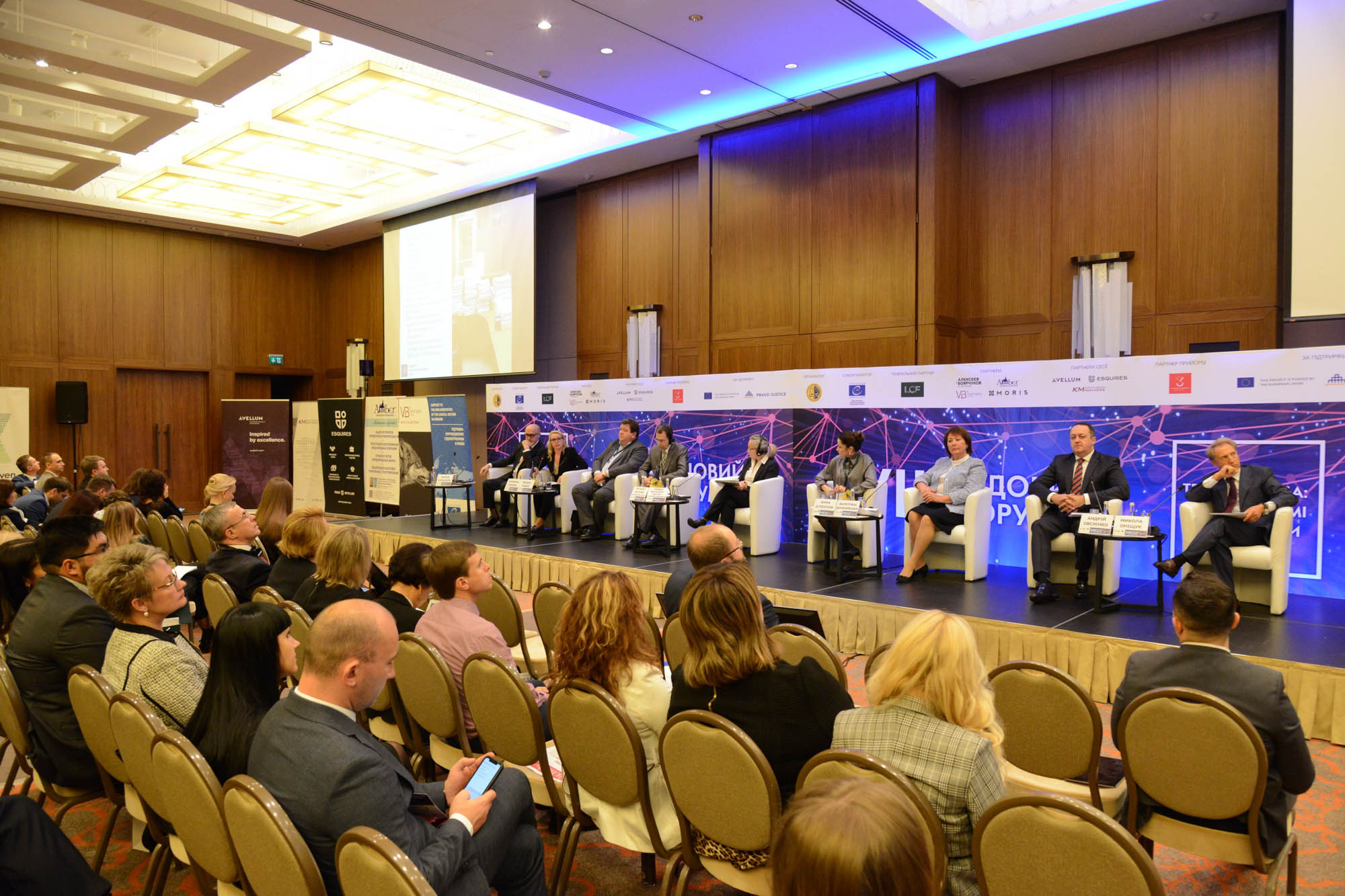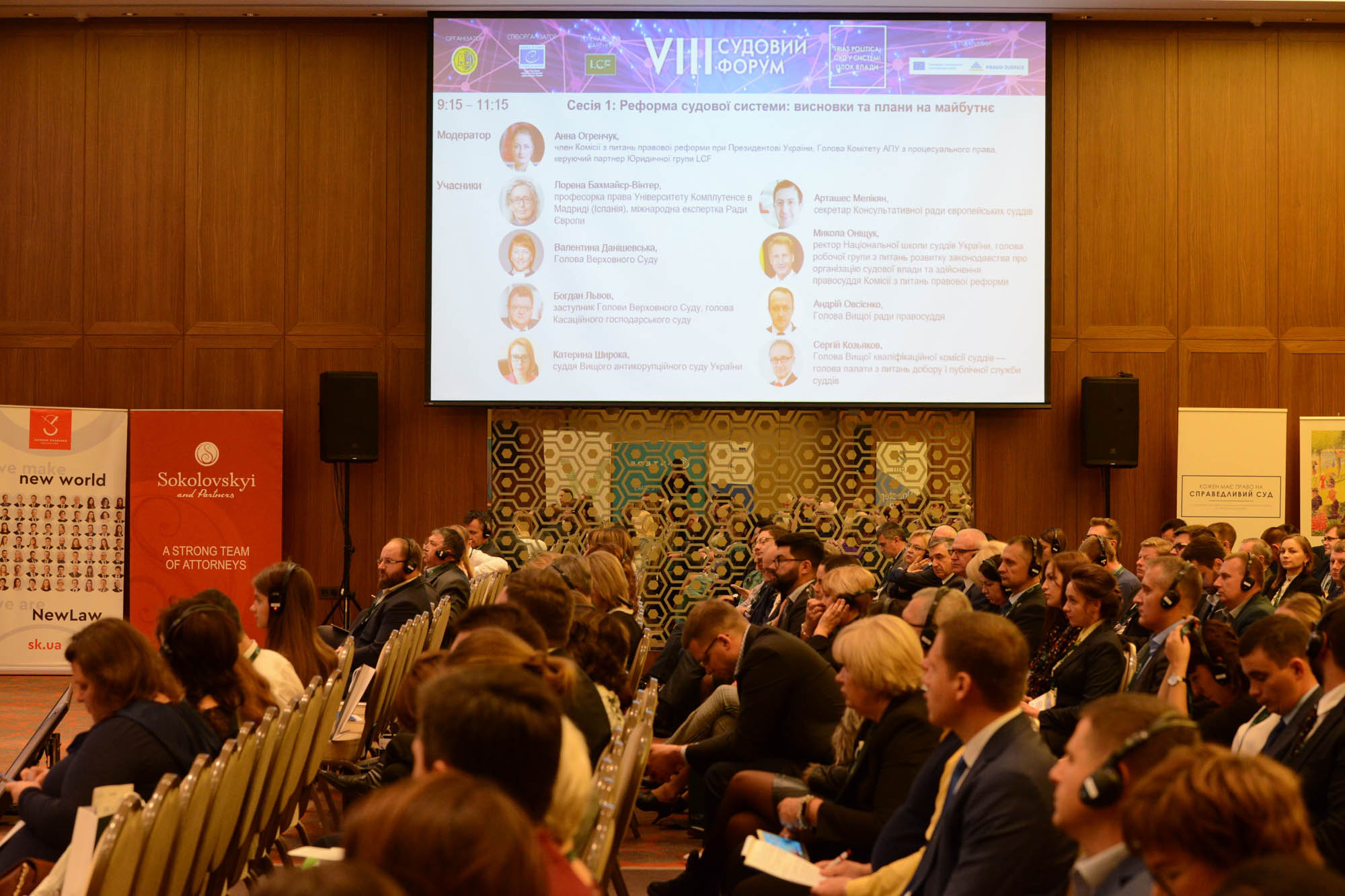Contact center of the Ukrainian Judiciary 044 207-35-46

During her speech on the VIII Judicial Forum that was organized by the Ukrainian Bar Association on 3-4 October in Kyiv, President of the Supreme Court Valentyna Danishevska informed about results of the SC functioning from December 2017 to September 2019
In total, the Supreme Court received 227 626 cases to be considered; herewith, some of them were dated back to 2011. As of 30 September 2019, a total of 162 320 proceedings were concluded, a balance of pending cases remains as 60 464.
The largest number of cases are referred to the Administrative Cassation Court – 48 % of the total number. And this percentage increased in comparison to last year (46 %).
34% of all cases are referred to the Civil Cassation Court, 10 % are considered by the Criminal Cassation Court, and 8 % - by the Commercial Cassation Court. At the same time, the number of cases referred to the Commercial Cassation Court tends to decline (in 2018 – 10 %).
These peculiarities were taken into account during the second round of selection of judges to the Supreme Court. So far, as of today, 55 judges are currently working in the Administrative Cassation Court, 44 judges - in the Commercial Cassation Court, 42 judges - in the Criminal Cassation Court and 51 judges - in the Civil Cassation Court.
Allocation of cases according to the categories is as follows: the highest percentage goes to:
Replying to the question, whether the judicial power should have the right to legislative initiative, Valentyna Danishevska said:
“As provided for by the Constitution of Ukraine, the President may propose to change the structure of the judicial power only after consultation and receiving opinion of the High Council of Justice. Pursuant to the Law of Ukraine “On the High Council of Justice” the HCJ shall provide advisory opinions, which are obligatory for examination by the Parliament, regarding the judiciary and the status of judges, etc. The Supreme Court shall also have relevant authority. And now we can see how the shields against legislative interference with judicial activity did work”.
After knowing about proposed amendments to the specific laws (the Draft Law No. 1008), reaction of the judicial system has been immediate: the High Council of Justice and the Supreme Court provided their opinions regarding the Draft Law. The Council of Judges of Ukraine also expressed its view as for the noted initiatives.
However, none of opinions have been officially examined by the Parliament.
According to Valentyna Danishevska: “The Supreme Court became a “litmus test” in this process. However, while there are some discussions regarding reformation of the High Council of Justice and the High Qualification Commission, there are none about reduction of the SC. Neither author of the draft law, nor members of the Parliament provided their reasons for the reduction of the maximum number of judges of the Supreme Court from 200 to 100”.
As to the SC President, it depends on the results of voting for the Draft Law No. 1008 “whether the judicial system of Ukraine is independent”.

She stressed the importance of this issue for country's existence.
In return, the SC Vice-President, the President of the Commercial Cassation Court within the Supreme Court Bohdan Lvov put emphasis on the quality of functioning of the commercial courts: “I have some kind of déjà vu: five years ago at the judicial forum, I was given an opportunity to express my point of view regarding liquidation of the commercial jurisdiction. Years passed. The commercial jurisdiction is working on a high-quality level, and this fact represents its jurisdictional advantages. However, an idea to reform something is heard again. Why crash something that works? No owner will break a thing that works well”.
Bohdan Lvov paid special attention to the quality of legal education. In his opinion, fundamental, but not structural, changes, including improvement of the quality of legal education, are important for the development of the judicial power. The judicial reform, therefore, should include reformation of legal education and science, as well. Bohdan Lvov underlined: “Until the quality of legal education is significantly improved, it is a vain effort to hope for improvement of the quality of the investigation or supreme courts functioning”.
 |
 |